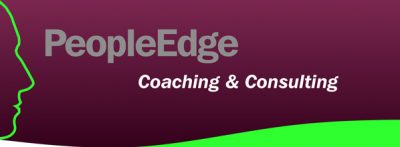
As a leader, your ability to anticipate potential business disruptions is crucial for ensuring the long-term success and sustainability of your organisation.
Whether it’s a global pandemic, economic recession, or natural disaster, unforeseen events can have significant impacts on your business operations and bottom line.
Here are some tips on how to anticipate potential business disruptions as a leader:
Stay Informed on Industry News and Trends
Staying informed is the first step in anticipating potential business disruptions. As a leader, you should regularly monitor news and trends in your industry and the broader economy. This will help you identify potential risks and opportunities that could affect your business.
Conduct a Comprehensive Risk assessment
Conducting a risk assessment is a critical step in anticipating potential business disruptions. A risk assessment will help you identify potential threats to your business, evaluate their likelihood and impact, and develop a plan to mitigate those risks.
Develop a Business Continuity Plan
Once you have identified potential risks, you should develop a contingency plan to minimise the impact of a disruption. Your contingency plan should outline how your business will operate in the event of a disruption, including alternative sources of supply, alternative work arrangements, and communication plans.
Build a Resilient Supply Chain
Building a resilient supply chain is crucial in anticipating potential business disruptions. You should evaluate your suppliers’ financial stability, diversify your suppliers, and build relationships with alternative suppliers. This will help ensure that your business can continue to operate even if one supplier is impacted by a disruption.
Embrace technology To Mitigate Disruptions
Embracing technology can help you anticipate and mitigate potential business disruptions. Cloud-based systems can help you quickly adapt to changing work arrangements, while analytics tools can help you identify potential disruptions and develop proactive strategies to mitigate them.
Furthermore, automation can help to reduce disruptions caused by workforce shortages. You can free up team members to focus on essential tasks during a disruption by automating routine tasks.
Engage with Stakeholders and Industry Peers
Engaging with stakeholders and industry peers is essential in anticipating potential business disruptions. You should maintain open lines of communication with customers, suppliers and employees to understand their concerns and needs. This will help you identify potential disruptions and develop strategies to minimise their impact.
Additionally, attending industry conferences, joining professional associations, and participating in online forums and communities to connect with other leaders in your field will help you stay informed about industry trends and best practices, as well as potential threats and disruptions.
Invest in Your Workforce
Investing in your workforce is critical in anticipating potential business disruptions. You should provide your employees with the tools and training they need to adapt to changing work arrangements, such as remote work. This will help ensure that your business can continue to operate even if there is a disruption that requires employees to work from home.
In conclusion, anticipating potential business disruptions is essential in today’s rapidly changing business environment. As a leader, you should stay informed, conduct a risk assessment, develop a business continuity plan, build a resilient supply chain, embrace technology, engage with stakeholders and peers and invest in your workforce to ensure your business can continue to operate in the event of a disruption.
By taking these steps, you can help your business thrive in the face of potential disruptions.
Jo Attard Watters is the Managing Principal and Founder of PeopleEdge Coaching & Consulting. Jo is a professional, Master’s degree qualified Executive and Career Management Coach, Consultant, Business Adviser and Academic who works with individuals and organisations to help them “be the best they can be”. With significant experience within both Corporate and Not for Profit sectors, Jo is passionate about seeing her clients succeed in their areas of interest.
Contact Jo at jo@peopleedge.com.au for more information.
